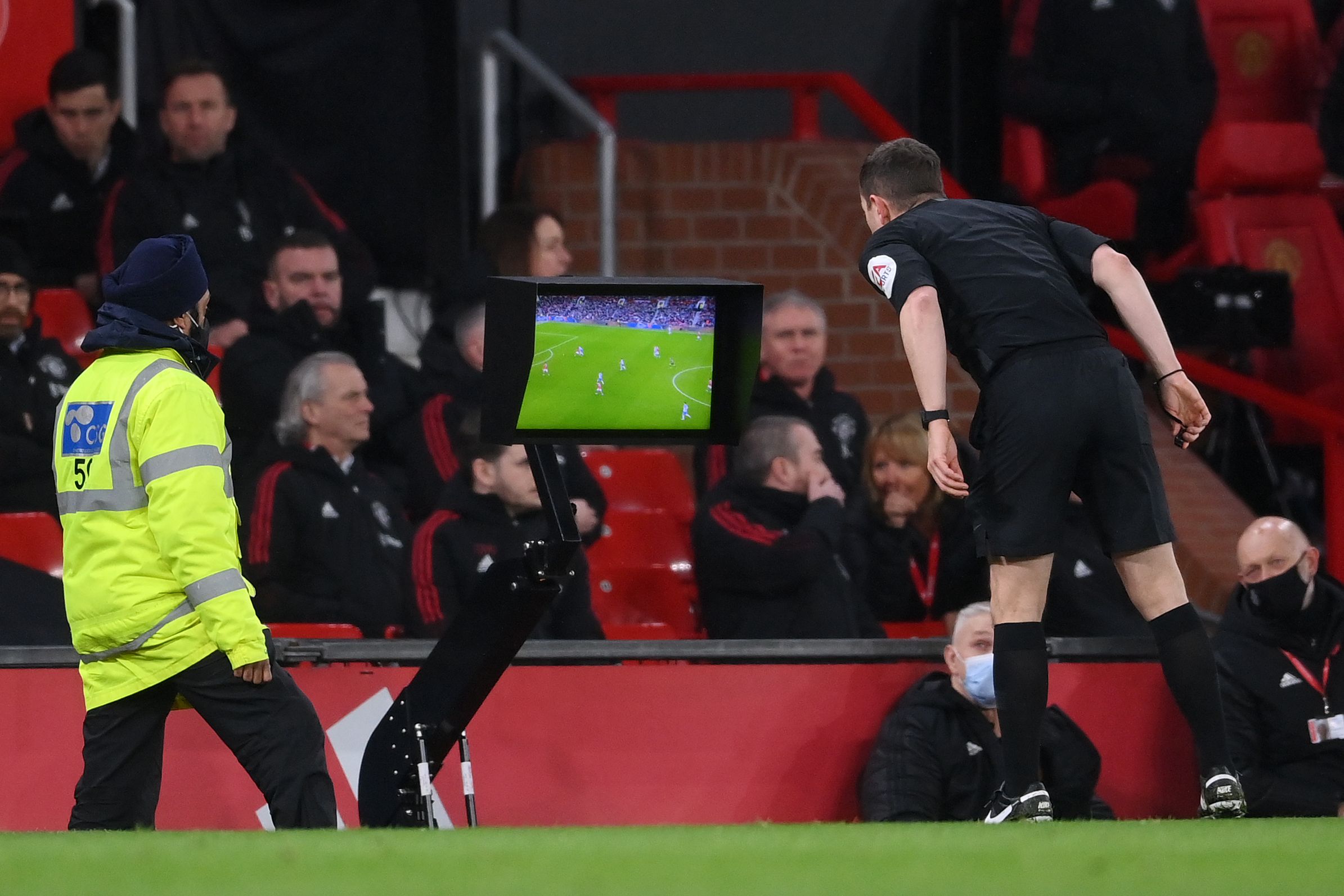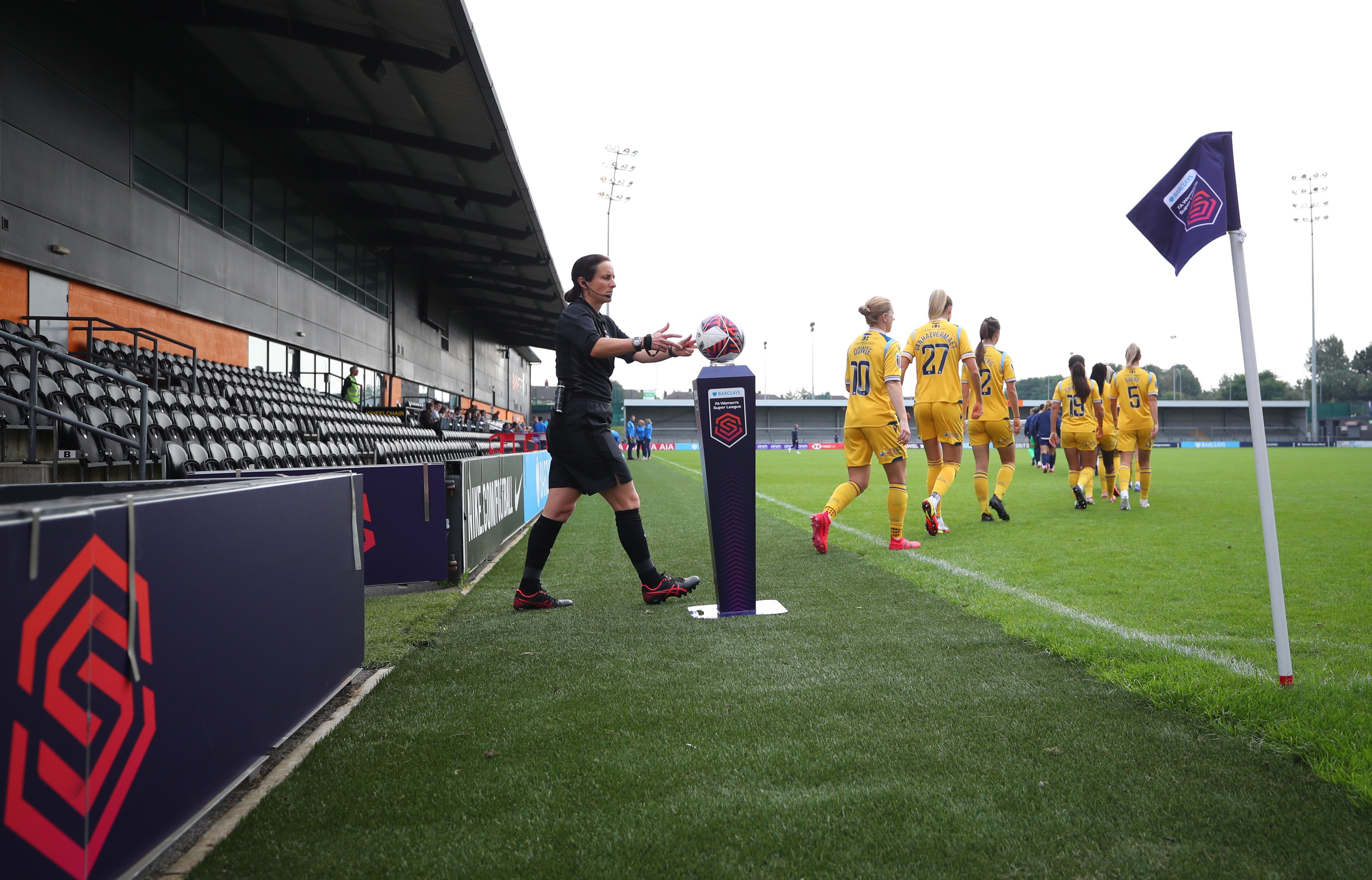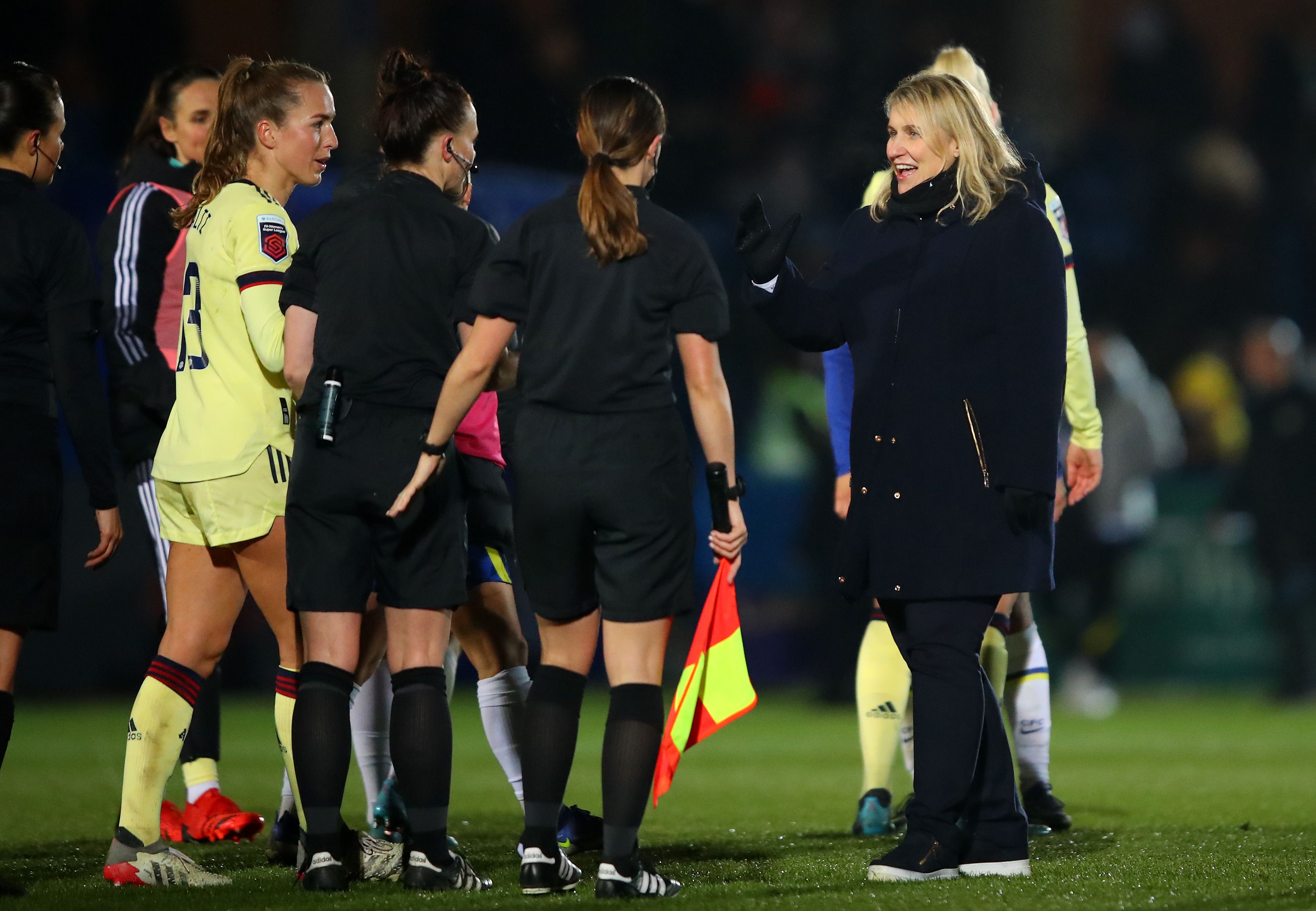Kelly Simmons, director of the women’s professional game at the FA, has said she is “really keen” to introduce a VAR-light system to the Women’s Super League.
According to The Times, the English Football Football League and WSL are aiming to bring in a low-cost alternative to the video referees used in the Premier League.
Both leagues have held talks with the Professional Game Match Officials Ltd, the body that manages elite referees, about bringing in a VAR-light system for the start of the 2023-24 season.
Scaled-back versions of VAR use fewer cameras, and are flexible enough to let competitions decide on the number of staff involved.
They have been tested in several countries and at the Asian Football Confederation’s Women’s Club Championships.
In one version, developed by technology company Dartfish, a video referee assistant sits in the stands, and the VAR monitor seen in the Premier League is replaced by an iPad.
VAR-light systems would not be able to provide offside or goal-line technology, however, although video officials can step in if TV replays show the ball is clearly over the line.
Simmons confirmed to The Times that the FA were interested in introducing such a system to the WSL.
“Definitely, we are really keen to do it in the WSL,” she said. “We have had early discussions with the PGMOL about looking at VAR-light and we are working on what that would look like and what would the costs be for us to deliver that.
“It is really critical that it comes in as soon as we can do it and can afford it.
“We have a fantastic group of referees, but without technological support you cannot see every single decision and you want those game-changing decisions to be as close to 100 per cent as possible.”
The WSL has been rocked by a number of controversial officiating decisions this season, with a number of calls set to have a significant impact on the make–up of the league table.
This can be attributed to a lack of technology in the WSL, with Chelsea Women manager Emma Hayes claiming last year that it felt like those in women’s football were treated like “second-class citizens”.
It must be noted that referees in the WSL are only semi-professional, however, with the FA facing calls to ensure that officials in women’s football soon become full-time.





















